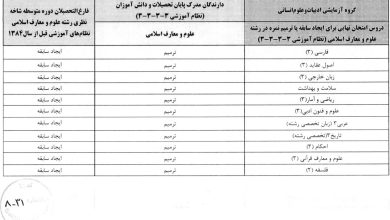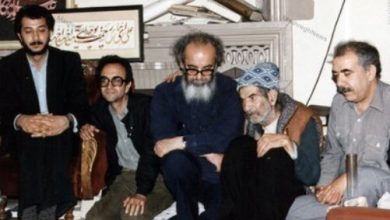
What is the cross-historical lesson and cross-cultural message of Ashura that we can think of centuries later? Ashura reminds us:
Life is noble. Life is beautiful. But the value of life is to live it well. The mainstay and foundation of dignified living and the main condition for dignified living is that a person can live independently and organize his ‘being’ at will.
But when the entrenched power and authority drags man into the humiliation of obedience and conformity, the cost of living increases exponentially and becomes impossible. Hussain was also aware of the fact that independent life has a high price and he was definitely ready, he sacrificed his life for this dream. He preferred life and death to a life of rebellion and humiliation. For Hussein, freedom was an incomparable virtue. He wanted to free his enemies.
Azad cannot stand humiliation and lives a humble and oppressed life. feel anxious. The scientist finds a cramped cage and wants to open it.
Hussein’s secret language and hidden message to us all:
A shameful life is not worth living.
Imam Hussein, peace be upon him, did not ascend. He did not intend to fight. This can be understood from his behavior in the company of his family and a few companions. He was an experienced warrior and knew that rebellion and war had their own rules. A man who wants to go to war brings his uniform instead of his wife and children. Therefore, Ashura cannot be presented as an uprising. The Ashura date also confirms this. Especially where Imam Hussein wants to stop the war by submitting several proposals to his opposite camp. Of course, the opposing camp came to crush its resistance with war. But Al-Hussein came to say: The shameful life and the oppressed life are not worth living.
Humiliation is so deadly that one of God’s great accusations against Pharaoh is that you insulted and humiliated the nation. The government of the Yazidis was similar to that of Pharaoh because he wanted to force everyone to obey.
Linguistically insulting and not recognizing, ignoring, and belittling the other are basically two types of insult.
sadhana (human instrument) for seeing others and
Humiliating others of their human condition and treating them as instruments and tools, as well as ignoring others’ right to choose and the will and individuality of others are examples of humiliation.
The establishment and the power in place wanted to destroy the person who was not willing to give up his power, his choice, his human dignity. Demanding allegiance to an established authority is nothing more than asking them to disregard themselves and bow before the ruler and bend their knees at the table of power. However, Hussein considered independence the highest virtue. Therefore, they could not stand the power. For this reason he rejected what he considered humble loyalty and defended his dignity and independence.
A weak and hated person who falls his stupidity under the feet of authority and pollutes life every day in the purgatory of decay, does he know what is Hussein’s last cry that he said: “If you have no religion, be free.”










